And that’s how I get out of looking after the shop. They wouldn’t really put me in charge of serving rowdy kids and drunken ahjussis anyway.
Category: Korean Language (Page 5 of 12)
Learning Korean and discussions about language
멘붕 is an abbreviation of 멘탈 붕괴 which means something like being really shocked and not even being able to think in that moment. It is often translated as “mental breakdown” in English which I don’t think is the best translation. Mental breakdown in English can still very much mean a very serious mental state that needs hospitalisation and completely disrupts someone’s life. Sometimes when I see translations and it’s translated into “I had a mental breakdown”… well they didn’t really, not how we might think in English, they were just very shocked in that moment, more like a WTF moment.
On a lighter note, it still sounds like “man boob” to me.
In other news: we just passed 12 thousand subscribers on YouTube! Thank you everyone. If you want to see all our videos, make sure you SUBSCRIBE.
Just a very quick comic today!
For those that can’t read Korean, the funny thing is that the first syllable of Mr Gwon’s Korean name and the blood sausage dish are the same, so not only does he want to call himself something that he likes to eat, but it already sounds really similar.
Lots of our Korean friends have changed their names, it seems to be more common here than it is in Australia. What about in your country? Do many people legally change their name?
I think I’ve mentioned mulgwishin before, which are water ghosts, but gwishin (귀신) in general tend to usually be female ghosts wearing the white funeral clothes with long dark hair. When you become more emerged in Korean culture you start to hear the word a lot more and realise how scary they are for people. I was just saying the word “fishing” but my husband thought I had said “gwishin”. Slightly worrying because it was late in the day and where we live is perfect habitat for gwishins! We live in an old village full of old houses and abandoned falling down houses. We also live near a school. Schools feature heavily in gwishin folklore because schools are so creepy at night and are all very similar looking across Korea. If I see a school in a Korean horror movie I know that at some point I need to walk past the school here at night, so it’s probably best not to watch those types of movies.
When we cut through the school grounds I usually salute the statue of Admiral Yi (important figure in Korean history) just to be on his good side. Many schools have a statue of him and it’s said that he gets down from his pedestal and walks around the school grounds at night. We figure that if a gwishin in the school is coming after us, Admiral Yi can come save us. Of course we don’t really have a strong belief in ghosts and all that, but it’s funny how folklore can affect the little things you do day to day.
He used both Korean and English is a sentence so my brain tried to use both Korean and English…
네 is yes in Korean (though it has more meaning that just ‘yes’ in English but let’s not go into that) and sounds something like “neh”. So that’s what happens when you combine it with ‘yes’….
Some days I feel like my English is deteriorating but my Korean is not getting any better.
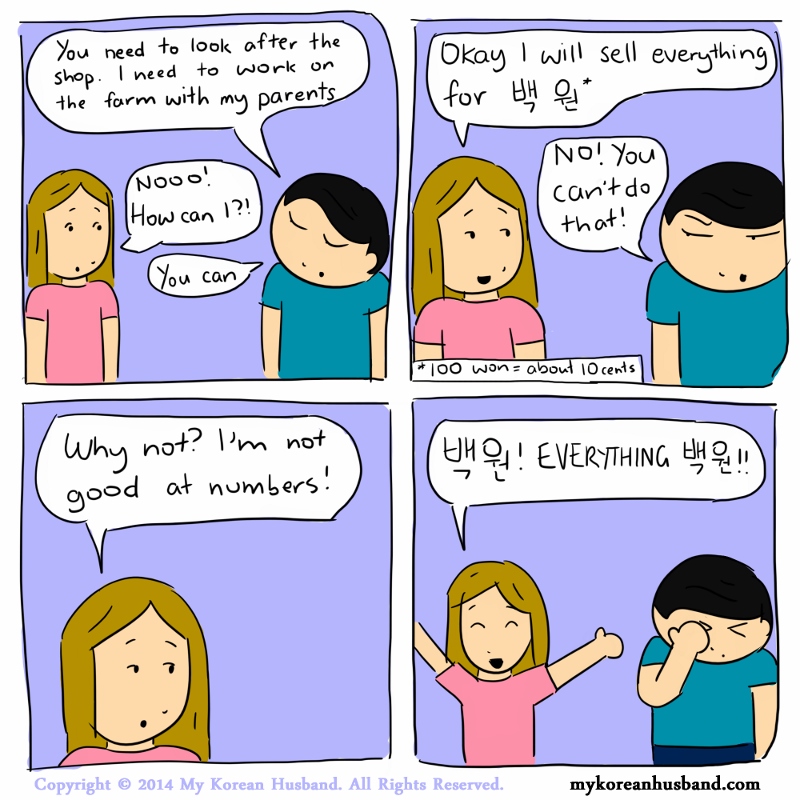

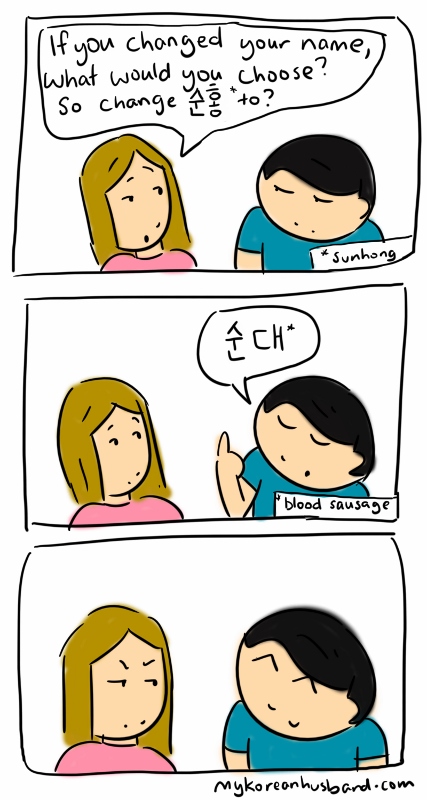
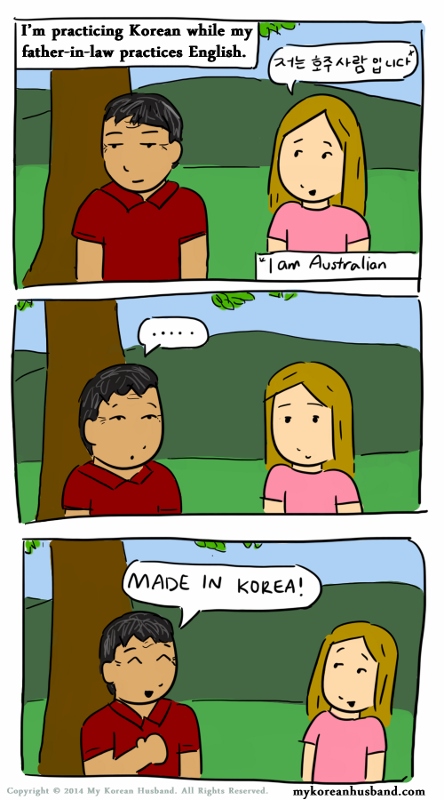

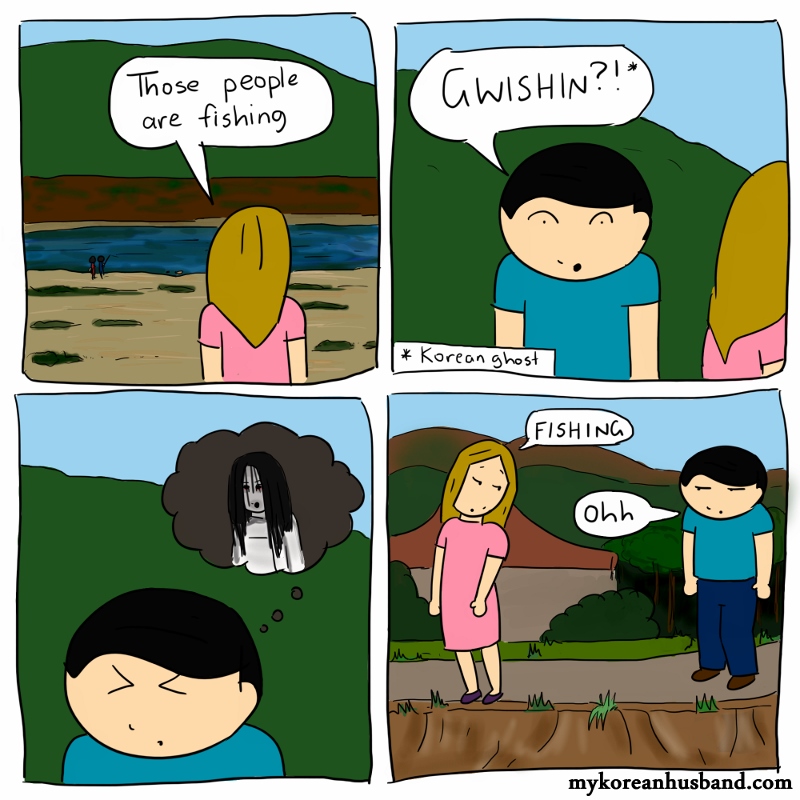
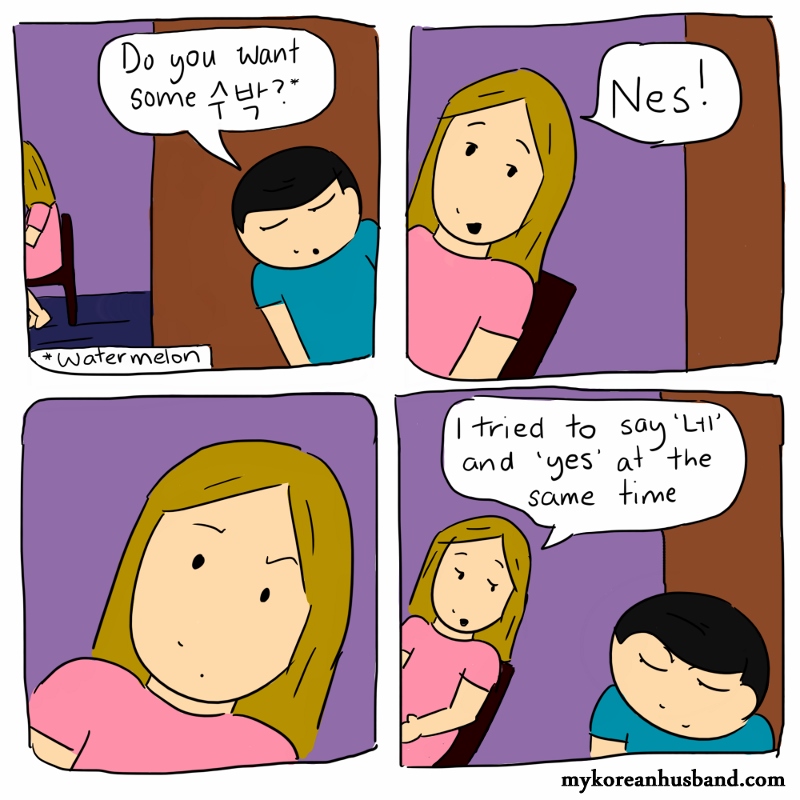

Recent Comments